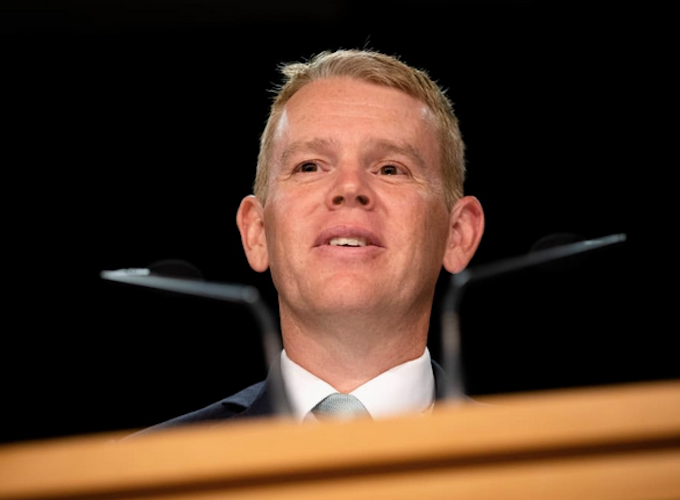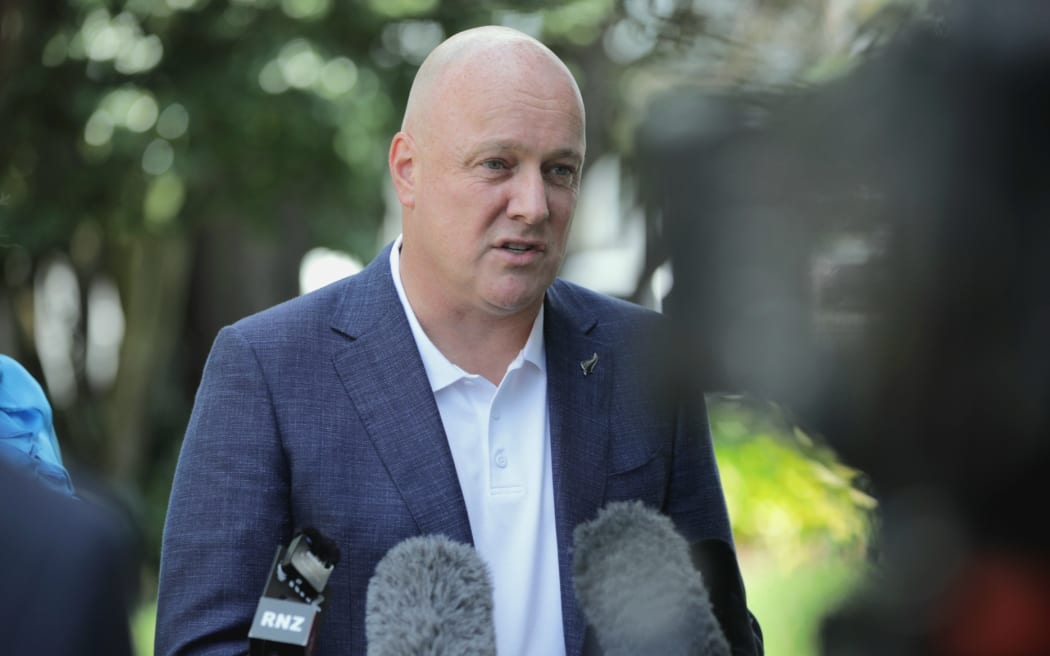
By Russell Palmer, RNZ News digital political journalist
Prime Minister Chris Hipkins has put the “bread and butter” issue of inflation at the top of his government’s agenda for Aotearoa New Zealand, saying today’s figures confirm that is the right approach.
Opposition leader Christopher Luxon continues to cast the government as having done nothing about the cost of living, but Hipkins argues the government’s actions are making a difference.
Annual inflation numbers for the quarter out from Stats NZ today were unchanged at 7.2 percent, roughly in line with expectations.
- READ MORE: Sepuloni’s ‘historic’ appointment symbolic for NZ, say Pacific leaders
- Other NZ politics reports
There are signs inflation may have peaked, and some supermarkets are expecting drops in fruit and vegetable prices in coming weeks, but rate rises and recession are still expected.
Economists say there is unlikely to be much respite from rising costs this year.
Speaking in his first media briefing as prime minister after chairing Cabinet, Hipkins said the work on reprioritising policy to tackle the issue had “started in earnest”.
“We will be reining in some of our plans, putting them on a slower track, giving us more room to move and greater capacity to focus on the immediate priority issues facing New Zealand, particularly the cost-of-living pressures that have been caused by the global economic situation.”
Not unusual
He said the inflation numbers from today were not unusual in comparison to other global economies — but the government would continue to work to reduce it.
“Our overall rate of inflation: 7.2 percent here in New Zealand, 7.8 percent in Australia, 10.5 percent in the United Kingdom, the OECD average is 10.3 percent, the European Union is 11.1 percent,” he said.
“The Treasury is forecasting real government consumption will fall by about 8.2 percent over the next couple of years which they say indicates that fiscal policy is supporting monetary policy in dampening inflationary pressures — but there’s more to do and the fight must and will continue.
“New Zealand is not immune to those international pressures and they will continue to have an impact on our rate of inflation.”
Luxon was earlier visiting a budgeting service in Papakura, Auckland, and led his comments to reporters afterwards with a familiar litany of criticism, saying those using the service were the same people using foodbanks up and down the country.
“Again a third quarter of inflation sitting at 7.2 percent or thereabouts. It just speaks to a government that is causing huge pain and suffering for people because it has no plan and it’s not tackling the underlying issues of inflation,” he said.

“That then leads to higher levels of interest rates. Higher levels of interest rates ultimately then lead us through to a recession and a recession then leads us into unemployment. I see a government that has had no plan to tackle the underlying causes of inflation, and nothing they have done over the last nine months has made a single difference here.”
He was not buying Hipkins’ language about reprioritisation and renewed focus on the economy.
‘It’s just words’
“He can say whatever he wants, it’s just words. The reality is this is a government with Grant Robertson as a Finance Minister over the whole period of this government.
“Nothing’s changed, so the reality is he can say whatever he wants but I find it incredibly cynical that here we are six months, seven months out from an election and all of a sudden we’re miraculously gonna focus on the economy. Give me a break.”
Luxon listed National’s “five-point inflation-fighting plan” as their own solution to the problem:
- Not adding costs to businesses which will be passed on to consumers through higher prices
- Open up immigration settings to grow the productive economy
- Control government spending “incredibly well and tightly as we expect people to do in their household budgets”
- Inflation-adjusted tax thresholds
- Refocus the Reserve Bank solely on inflation
Hipkins argued the government had been doing its part to address the underlying causes, including at the petrol pump and the supermarket, and it was having an impact.
He listed fuel tax cuts, and changes to benefit rates as examples where the government had stepped in, and said while it was too early to see the results of changes to immigration from a month ago, he had heard positive feedback from businesses.
More changes
He said the government would not stop there and would continue to make changes — and May’s budget was not set in stone.
“There is an opportunity for us to make sure that the Budget reflects the priorities that I’ve set out,” he said, while drawing a line between carrying out the policy promises of this term of government — and campaigning for the next.
“In terms of our tax policy for the next election New Zealanders will know it well in advance of the election. I’m not going to announce a tax policy on day one.”
He signalled he would not forget other priorities — highlighting climate change as well as education, health and housing — but all of them were linked to cost-of-living pressures, he said.
“If you look at the inflationary figures today the cost of building a new house is one of the things that’s contributing to that.
“We’ve seen significant population growth and we haven’t built the right number of houses to keep up with that, that’s never going to turn around overnight but we’re making good progress.”
Luxon targeted the closure of the Marsden Point Oil Refinery as one area the government had not thought through the consequences of, however, with shortages of CO2 and Bitumen impacting some sectors of the economy.
Strategic assets
“There are some strategic assets that actually are important to New Zealand and actually in the context of more global uncertainty you want to make sure you’ve got resilience and you’ve got the backup to the backup to the backup.
“I’m used to running risk management scenarios . . . I get it, we want to move out of fossil fuels, but actually at the moment we’ve knocked off our gas sector and now we’re importing what, three times as much Indonesian coal as any year in a National government?”
“The ambition’s easy to state but actually if you don’t think through the detail of it you end up with these consequences that cause us a different set of problems.”
Hipkins certainly has a big job ahead of him in wrangling an inflation juggernaut powered in large part by similar rises in costs overseas.
While he refused to make any commitments on his first day in the job, he was confident New Zealand would soon see the effects.
“New Zealanders will certainly see over the coming weeks and months the evidence of the fact that we’ve made it our number one priority.”
This article is republished under a community partnership agreement with RNZ.












































